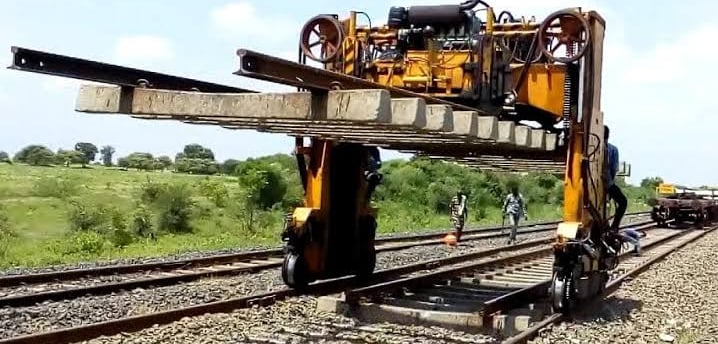Add your promotional text...
CCEA Greenlights Strategic Railway Projects to Transform India's Connectivity and Economy
Synopsis: The Cabinet Committee on Economic Affairs, led by Prime Minister Narendra Modi, has approved three major railway projects with an investment of Rs 6,456 crore. Spanning four states, these projects will extend India's rail network by 300 kilometers, enhance logistical efficiency, and support economic growth by improving connectivity to remote areas. The initiatives will generate significant employment and are expected to be completed by 2028-29, contributing to the broader goal of sustainable national development.
TOP STORIES
By Vishwash Saxena
8/29/20242 min read


In a significant move towards enhancing India’s railway infrastructure, the Cabinet Committee on Economic Affairs (CCEA), led by Prime Minister Narendra Modi, has greenlit three pivotal projects under the Ministry of Railways. These initiatives, estimated at a total cost of Rs 6,456 crore, are expected to be completed by the 2028-29 financial year. The projects are set to create approximately 114 lakh man-days of direct employment during their construction phase, highlighting their potential to not only upgrade the nation’s transportation framework but also to stimulate economic activity.
Expanding Rail Networks Across Multiple States
These three projects are spread across seven districts in four states: Odisha, Jharkhand, West Bengal, and Chhattisgarh. They will collectively extend the Indian Railways network by about 300 kilometers. This expansion is in line with the PM-Gati Shakti National Master Plan, which aims to develop multi-modal connectivity across India, thereby fostering enhanced mobility and connectivity for both people and goods.
Infrastructure Development: New Stations and Connectivity
A key feature of these projects is the construction of 14 new railway stations. These stations are strategically placed to improve accessibility, particularly in two aspirational districts: Nuapada in Odisha and East Singhbhum in Jharkhand. The enhanced rail infrastructure will benefit approximately 1,300 villages and around 11 lakh people through new line projects, while the multi-tracking efforts are set to impact nearly 19 lakh people across the same number of villages.
Boosting Logistical Efficiency and Economic Growth
The approved projects are poised to significantly enhance logistical efficiency across the regions they cover. By connecting previously unconnected areas, the projects will help to streamline supply chains, increase line capacity, and improve transportation networks. This, in turn, is expected to lead to accelerated economic growth, especially in the transportation and logistics sectors. The new rail lines and capacity augmentation efforts are essential for the transportation of key commodities, including agricultural products, fertilizers, coal, iron ore, steel, cement, and limestone.
Projected Freight Traffic and Economic Impact
One of the most impactful outcomes of these projects is the anticipated increase in freight traffic, estimated at an additional 45 million tonnes per annum (MTPA). This increase is expected to have a ripple effect on the overall economy, facilitating more efficient movement of goods and contributing to the growth of industries reliant on these supply chains.
Previous Approvals and Continued Expansion
This recent approval follows an earlier CCEA decision this month to advance eight other railway projects, with a combined investment of around Rs 24,657 crore. These projects, expected to be completed by 2030-31, will further extend the Indian Railways network by an additional 900 kilometers across 14 districts in seven states, including Odisha, Maharashtra, Andhra Pradesh, Jharkhand, Bihar, Telangana, and West Bengal. The construction phase of these projects is projected to generate employment for about three crore man-days, underscoring the significant role that railway expansion plays in job creation and economic development.
In conclusion, The approval of these railway projects marks a critical step in India’s ongoing efforts to modernize and expand its transportation infrastructure. By improving connectivity, enhancing logistical efficiency, and fostering economic growth, these projects will not only transform the regions they cover but also contribute to the broader national goal of achieving robust, sustainable development. The Indian Railways, with these new expansions, is set to play an even more crucial role in the nation’s economic landscape, supporting industries, communities, and the overall progress of the country.
